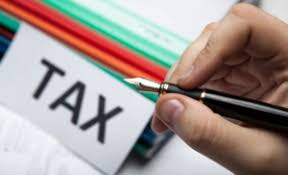HMRC may investigate an error or error on your tax return; this could be a genuine error when the taxpayer has taken "reasonable care" and is not a "deliberate" or "hidden" error. It is most likely due to a lack of knowledge when completing the tax return. However, taxpayers should be careful, as even genuine mistakes can lead to fines.
Tax Return Services in Barking takes a very close look at errors or
errors on tax returns and deliberates whether the error or error was genuine or
due to a lack of reasonable care or deliberate and hidden. The last two HMRC
treats as the most severe and the fines can be one hundred percent of the tax
owed and in the worst case, up to seven years in prison.
When processing tax returns, HM
Revenue & aaaaccounting Customs has found that the ten most common mistakes
are:
1. A 'yes'
mark was entered in one of the questions 1 through 9 on page 2 of the tax
return, but the supplemental page was not submitted with the tax return.
2. Do not
fill in the self-employed pages, especially on page SEF4 from box 64 onwards.
3. Itemize
information at separate times instead of including the information in return.
4. Enter
handwritten notes on the return, that is, "by accounts" and/or
"information to follow" instead of entering actual figures on the
form.
5. Failing
to complete a separate supplemental page for each individual job.
6. Enter the
net amount of the employees' personal pension premiums instead of the gross.
7. Enter the
capital expenditures figure in box 48 on the Self-Employment pages in lieu of
capital allocations (i.e. claim excessive relief).
8. Do not
enter the details of the bank account in TR5 of the basic statement where a
refund must be made. Revenues will assume that you want to leave the overpaid
amount on your record, to be set against future liabilities; you have the right
to choose.
9. Enter
your salary in box 1 of the employment schedule, but do not enter any deducted
taxes in box 2.
10. If you
do not sign a paper statement, it will be rejected immediately.











